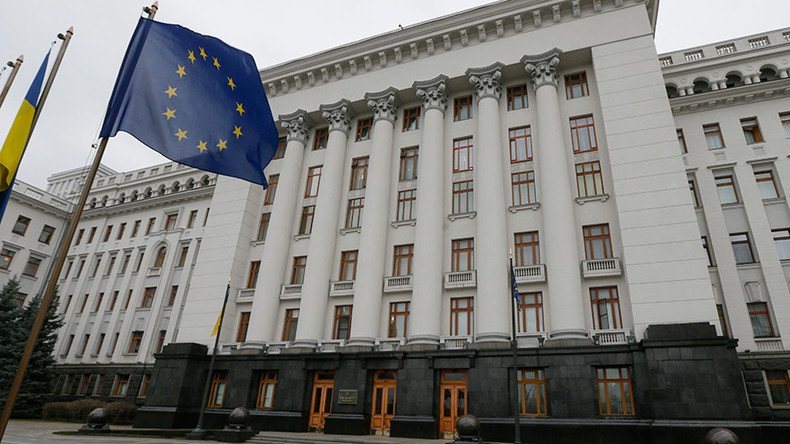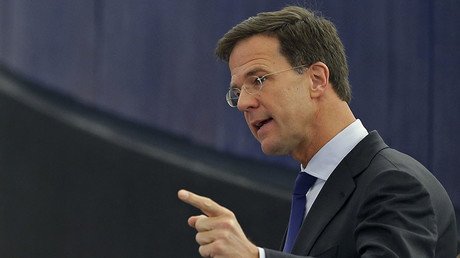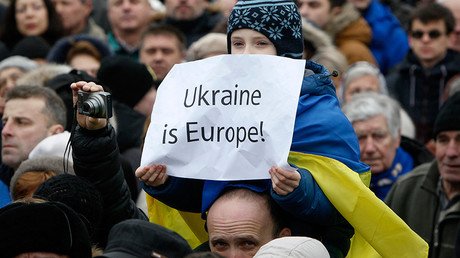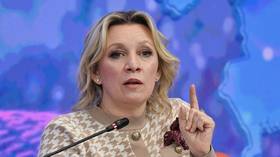5 EU states block Ukraine’s membership prospects – report

Five EU countries remain firmly against Ukraine ever joining the union, French diplomat Pierre Vimont, who has helped negotiate the Ukraine - EU Association Agreement, told a Dutch publication ahead of next week’s advisory referendum on the deal in the Netherlands.
Germany, France, Austria, Belgium and the Netherlands all rejected the idea of Ukraine’s potential EU membership during the five-year negotiation period in 2008-2012, Vimont told Volkskrant.
Even after the 2014 Euro-Maidan revolution, the group of EU states refused to consider the matter of including a clause in the Association Agreement that would outline a roadmap for Ukraine’s potential ascension into the Union – despite efforts by Britain, Sweden, Poland and the Baltic states to pave the road for Kiev.
The EU states “consistently refused… to make any pledges about the future,” Vimont explained.
An anonymous Lithuanian diplomat confirmed the fracture within the EU, telling the publication that countries which thought of including a clause in the treaty on membership went too far while France and the Netherlands “just kept saying 'no perspective, no perspective.’”
Vimont said that France and the Netherlands are skeptical about Ukraine’s prospects within the EU as both countries are “fed up with expansion,” noting that both states also rejected the EU constitution in referendums in 2005.
The Netherlands will hold an advisory referendum on a key treaty between the European Union and Ukraine on April 6, 2016. Only Dutch nationals will be able to vote. While not legally binding the vote will serve as an indication of attitudes towards Ukraine. At least 30 percent of the electorate have to vote in the referendum for it to have any weight.
The agreement only focuses on a broad trade deal between Ukraine and the EU, with the sides agreeing to open their markets and remove tariffs on goods. The introduction of a visa-free travel regime is also not specified in the document, and the freedom of employment which is only available to full EU member states is also off the table.
Ahead of next week’s referendum, polls carried out last month showed that the Dutch will most likely vote “No” on the single question which will read: “Are you for or against the law approving the treaty of association between the European Union and Ukraine?”
According to a poll carried out by the Dutch Socialist Party (SP), 76 percent of those asked would vote “No” on April 6. Another poll conducted by Volkskrant showed that 57 percent will vote “No”.
On Wednesday, while admitting that Ukraine should never become a member of the European Union, the Dutch prime minister Mark Rutte, urged people to vote “Yes” promoting Ukraine as an important buffer zone between the EU and Russia.
“This referendum is about an association agreement greatly in the interests of the Netherlands. Stability on the edge of Europe in an unstable world,” Rutte said in an interview with Nu.nl
The US State Department echoed Rutte’s remarks urging the voters to accept the Association Agreement.
“We believe the EU-Ukraine Association Agreement is critical to ensuring that Ukraine’s leaders continue to make the needed and important reforms that will contribute to a more peaceful, democratic, prosperous and stable continent,” spokeswoman Elizabeth Trudeau said in a briefing.
European Commission chief Jean-Claude Juncker noted that a rejection of the treaty could lead to a “continental crisis.”














